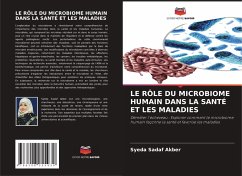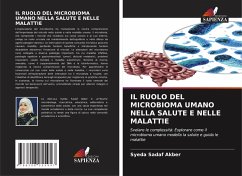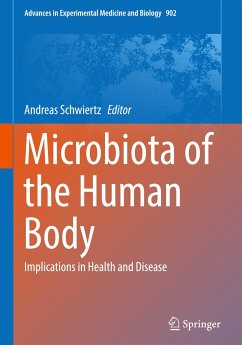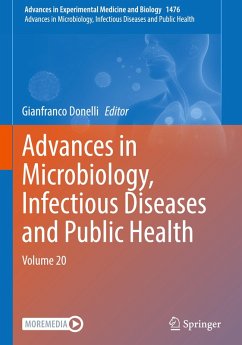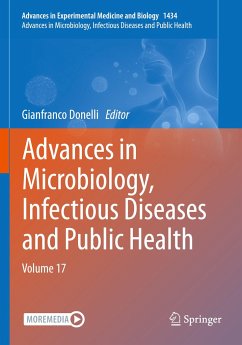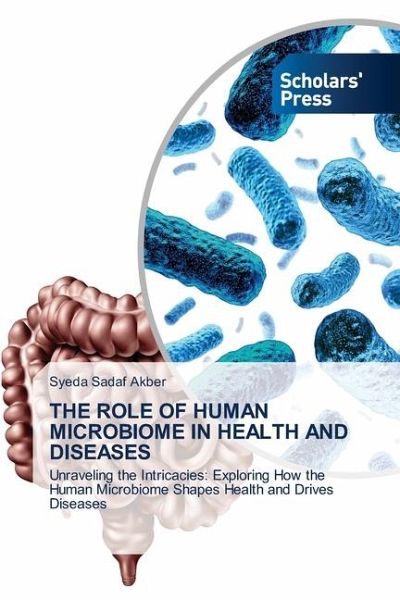
THE ROLE OF HUMAN MICROBIOME IN HEALTH AND DISEASES
Unraveling the Intricacies: Exploring How the Human Microbiome Shapes Health and Drives Diseases
Versandkostenfrei!
Versandfertig in 6-10 Tagen
34,99 €
inkl. MwSt.

PAYBACK Punkte
17 °P sammeln!
Exploring the microbiome has revolutionized our comprehension of the significance of microbes in human health and disease. The microbiota, comprising microbes residing on and within the human body, plays a crucial role in maintaining balance and defending against harmful pathogens. Disruptions to this microbial community can result in disease by either losing beneficial functions or introducing maladaptive functions through invading microbes. Changes in the microbiome are linked to various major diseases, spanning infectious diseases, liver and gastrointestinal conditions, cancers, metabolic d...
Exploring the microbiome has revolutionized our comprehension of the significance of microbes in human health and disease. The microbiota, comprising microbes residing on and within the human body, plays a crucial role in maintaining balance and defending against harmful pathogens. Disruptions to this microbial community can result in disease by either losing beneficial functions or introducing maladaptive functions through invading microbes. Changes in the microbiome are linked to various major diseases, spanning infectious diseases, liver and gastrointestinal conditions, cancers, metabolic disorders, respiratory issues, mental health, and autoimmune diseases. Advanced research techniques, including DNA sequencing and bioinformatics, have enhanced our understanding of the microbiota. To deepen insights into its role in health and disease, researchers advocate exploring interactions between the microbiota and the host, aiming to identify therapeutic targets for improved clinical practices. In essence, microbiome research has illuminated the pivotal role of microbes in human well-being promising avenues for further investigation and treatment approaches.





